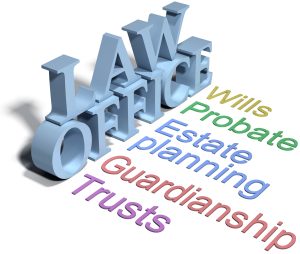 The New York estate laws contain provisions concerning the various relationships between family members. There are statutes concerning spousal rights and also inheritance rights relating to other family members. For example, a New York spouse has the ability to make a claim against the other spouse’s estate if they are disinherited. Estates, Powers & Trusts Law Section 5-1.1-A entitled “Right of election by surviving spouse” provides that a disinherited spouse can file a right of election to claim one-third (1/3) of a decedent’s net estate. The New York Probate Lawyer Blog contains many articles concerning a spouse’s right of election.
The New York estate laws contain provisions concerning the various relationships between family members. There are statutes concerning spousal rights and also inheritance rights relating to other family members. For example, a New York spouse has the ability to make a claim against the other spouse’s estate if they are disinherited. Estates, Powers & Trusts Law Section 5-1.1-A entitled “Right of election by surviving spouse” provides that a disinherited spouse can file a right of election to claim one-third (1/3) of a decedent’s net estate. The New York Probate Lawyer Blog contains many articles concerning a spouse’s right of election.
On the other hand, a person has an absolute right to disinherit any other person, including children. Children have no right to receive a share of a parent’s estate if a person leaves a child out of a Last Will and Testament or does not have a child as a beneficiary of an asset that passes by operation of law.
There are additional considerations where a decedent does not have a Last Will. Estate settlement and distribution will be controlled by the laws of intestacy. EPTL Section 4-1.1 entitled “Descent and distribution of a decedent’s estate” sets forth the manner by which an intestate estate is to be paid. There is a priority among the decedent’s family members and a spouse and children are at the top of the list.
Another interesting aspect of the estate laws is that there are provisions whereby persons entitled to receive an inheritance may be disqualified due to certain circumstances. For example, EPTL Section 4-1.4 entitled “Disqualification of parent to take intestate share” provides that a parent may be disqualified to receive an intestate share of a child’s estate if the parent did not provide for the child or abandoned the child. This issue recently arose in a Staten Island estate case entitled Estate of Silberlight, decided by Richmond County Surrogate Matthew Titone on May 15, 2023. In Silberlight, a petition in the Surrogate’s Court sought to disqualify a child’s father from inheriting. It was alleged that the father failed to financially provide for the child. However, the father presented an Order from the Family Court stating that required support payments were terminated and that no arrears were owed. Therefore, the Court refused to grant the petitioner summary judgment and ordered a hearing.
It is also noted that a spouse may lose inheritance rights, as well. EPTL Section 5-1.2 entitled “Disqualification as a surviving spouse” states numerous grounds for disqualification. These grounds include the abandonment of the decedent by the surviving spouse and also the failure to pay spousal support.
As can be seen, the right to receive an inheritance from an estate can be complicated and may involve estate litigation to enforce beneficiary rights. An experienced estate lawyer can be essential to protect valuable interests. I have been representing clients in estate and also guardianship cases for over 40 years. Do you have a question regarding these matters? Call Me Now for a free confidential review. We offer reasonable and flexible fee arrangements and personal representation.
New York Trusts and Estates Attorney Jules Martin Haas has helped many clients over the past 40 years resolve issues relating to guardianship and probate and estate settlement throughout New York City including the Bronx, Queens, Brooklyn, Manhattan, Nassau and Suffolk County. If you or someone you know has any questions regarding these matters, please contact me at (212) 355-2575 for an initial free consultation.
 New York Probate Lawyer Blog
New York Probate Lawyer Blog

